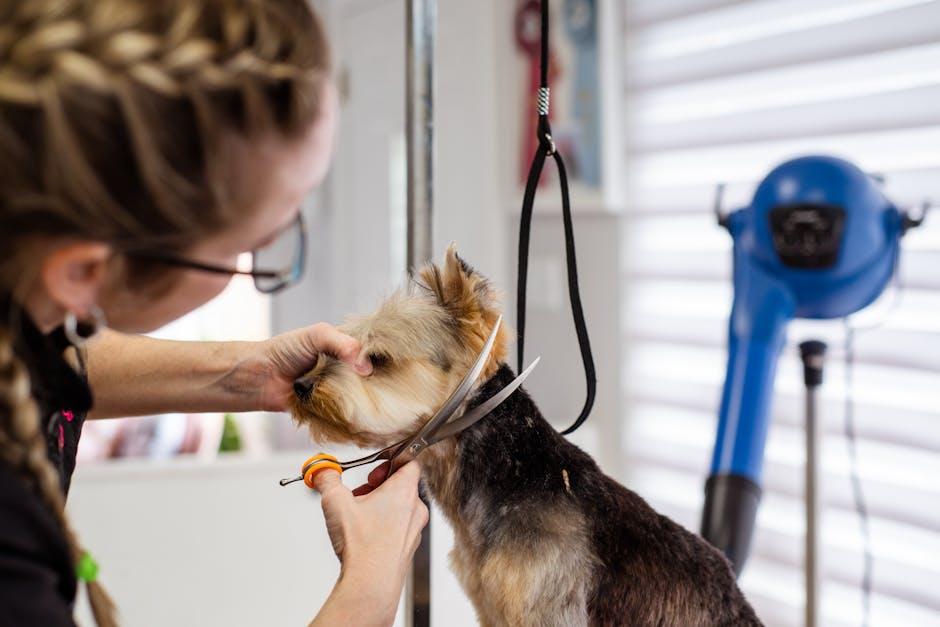As the crisp air of flu season sweeps in, it’s not just humans who are at risk—our furry friends can also feel the chill. Ensuring your dog’s health during this time is crucial, as they rely on us to protect them from seasonal ailments. With a little extra care and attention, you can keep your canine companion healthy and happy throughout the colder months. In this article, we’ll explore practical and effective ways to safeguard your dog’s health during flu season, so you both can enjoy the cozy comforts of winter worry-free. Whether you’re a seasoned pet owner or new to the joys of having a dog, these tips will help you provide the best care for your beloved pet.
Understanding Canine Flu Symptoms and Prevention
As flu season approaches, it’s crucial to be vigilant about your furry friend’s health. Recognizing the signs of canine influenza early can make all the difference in ensuring a swift recovery. Common symptoms to watch out for include:
- Persistent cough that lasts for several weeks
- Runny nose and nasal discharge
- Fever and lethargy
- Decreased appetite
- Eye discharge
Prevention is just as important as recognizing symptoms. To safeguard your dog, consider these preventive measures:
- Keep your dog away from infected animals and crowded places during outbreaks
- Regularly clean your dog’s toys, bowls, and bedding
- Consult your vet about the canine flu vaccine
- Maintain a healthy diet and exercise routine to boost their immune system
- Practice good hygiene by washing your hands after handling other animals
By staying informed and proactive, you can help ensure your dog stays happy and healthy all flu season long.

Creating a Safe and Healthy Home Environment
Ensuring your furry friend remains healthy during flu season involves a few proactive steps to create a nurturing environment. Start by maintaining a clean home; regularly disinfect surfaces that your dog frequently comes into contact with, such as floors and furniture. This minimizes the risk of germ transmission. It’s also wise to wash their bedding and toys often, using pet-safe detergents to keep harmful pathogens at bay.
Consider implementing the following tips to further protect your dog:
- Boost their immunity by providing a balanced diet rich in essential nutrients and consider supplements like Omega-3 fatty acids.
- Ensure they have access to fresh water at all times to stay hydrated.
- Limit their exposure to other animals if there’s a known flu outbreak in your area.
- Consult your veterinarian for a suitable vaccination plan tailored to your dog’s needs.
By taking these steps, you not only safeguard your dog’s health but also contribute to a more wholesome and serene home environment.
Boosting Your Dogs Immune System Naturally
Ensuring your furry friend is well-equipped to fend off seasonal bugs starts with a robust immune system. Just like us, dogs benefit from natural boosters that can help ward off illnesses. Consider incorporating these immune-enhancing strategies into your dog’s routine:
- Balanced Diet: Opt for high-quality, nutrient-rich foods that are free from artificial additives. Foods rich in Omega-3 fatty acids, such as fish oil, can help reduce inflammation and support immune health.
- Herbal Supplements: Herbs like echinacea and astragalus are known for their immune-boosting properties. Always consult your vet before adding new supplements to your dog’s diet.
- Regular Exercise: Consistent physical activity helps maintain a healthy weight and reduces stress, which can bolster immune function.
- Hydration: Ensure your dog has access to fresh, clean water at all times to help flush out toxins and support overall health.
Incorporating these practices can create a natural shield, keeping your dog healthier and happier through the flu season and beyond.

Consulting Your Veterinarian for Expert Advice
When it comes to keeping your furry friend healthy during flu season, consulting your veterinarian is an essential step. These experts are well-versed in the latest health trends and vaccinations that can protect your dog from seasonal illnesses. They can offer personalized advice tailored to your dog’s specific needs, considering factors like age, breed, and any existing health conditions.
During your consultation, consider discussing the following with your vet:
- Vaccinations: Ask if there are any recommended vaccines that can prevent flu or other seasonal diseases.
- Nutritional Supplements: Inquire about supplements that might boost your dog’s immune system.
- Behavioral Changes: Report any unusual behaviors that might indicate illness.
- Preventive Measures: Seek advice on hygiene practices and environmental controls to minimize exposure to viruses.
By engaging with your veterinarian, you’re taking proactive steps to ensure your dog’s health and happiness, keeping them safe through the flu season and beyond.

